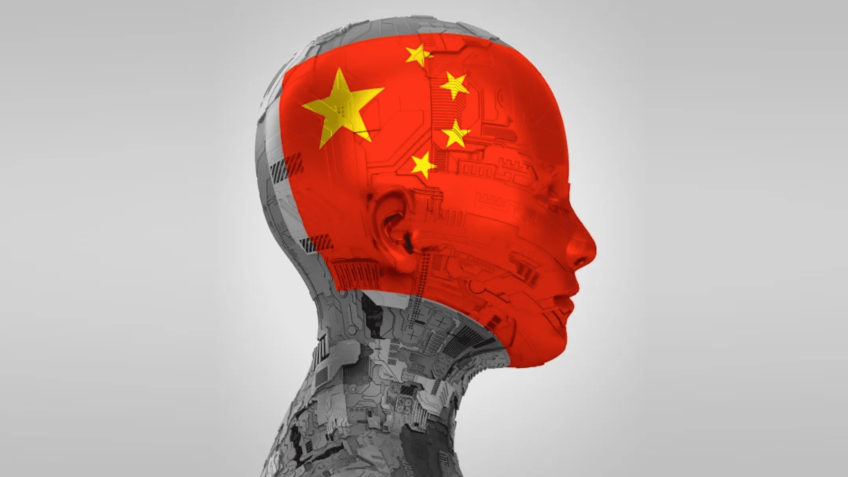
Survey indicates that 83% of Chinese corporations employ this technology, while in the US this percentage is 65%
The United States has the most important companies in generative artificial intelligence, the kind that understands questions and responds as if it were a human.
But it is in China that the corporate use of this type of technology is most widespread. There, 83% of corporations employ generative AI, according to a search carried out by the software company SAS with 1,600 decision-making executives from 22 countries.
The survey covers use in industry, banking, insurance, telecommunications, utilities, healthcare, retail and professional services. Countries surveyed range from the US to Saudi Arabia, the UK to Australia, and Brazil to Mexico.
The US was the birthplace of this new technology, but it only appears in third place in the survey, with 65% of companies adopting generative AI. The country is behind the United Kingdom (70%).
To balance the game, the United States leads in terms of total implementation of the new technology, with 24%. China comes in right after that. rankingcom 19%.
It doesn’t take a genius to foresee that China’s leadership will have an impact on the price war that the country is waging with the rest of the global market. If China already has products with unbeatable prices without the use of artificial intelligence, it is easy to imagine the damage that the adoption of AI will cause to the competition. It is known that these prices are the result of strong government subsidies and wages that are lower than those in the United States and Europe, but higher than those in Brazil and Mexico.
The damage to competition should be even greater if you look at another survey on generative AI: the one on patents registered by World Intellectual Property Organizationa Geneva-based institution that is part of the UN (United Nations) system. China leads by a wide margin: it has registered 38,000 patent applications for generative AI, 6 times more than the 2nd place on the list, the USA (6,276). The research analyzes the decade from 2014 to 2023.
The Chinese numbers tallied by the UN arm are staggering. If you look at the data from 2017 onwards, China has registered more patents than all other countries in the world combined.
Of the top 10 corporations filing patents, 6 are Chinese, 3 are American, and 1 is South Korean. The order is as follows:
- Tencent (China): 2.074;
- Ping An Insurance (China): 1.654;
- Baidu (China): 1.234;
- Chinese Academy of Sciences (China): 607;
- IBM (USA): 601;
- Alibaba Group (China): 571;
- Samsung Electronics (South Korea): 468;
- Alphabet (USA): 443;
- ByteDance (China): 418;
- Microsoft (USA): 377.
I’ve seen AI experts say that the US hides its game and doesn’t register all its patents. I’ve also seen arguments that the Chinese register every detail, fearing that a discovery will become the key to a big leap forward in the future. The fact is that the game-changer came in the US, with OpenAI’s ChatGPT, launched in November 2022.
There is, however, a striking difference between the US and Chinese strategies: the Chinese have had an AI plan since 2017, according to which they will be the market leader in this market by 2030. The project had a bland title, similar to those adopted by the former Soviet Union: “Plan and Development of the New Generation of Artificial Intelligence”according to the English version made by sinologists hired by Stanford University. But he had a gigantic ambition: build a $150 billion market by 2030.
China’s pace of AI research has been so brutal that US President Joe Biden has been forced to emulate Donald Trump and impose barriers: companies like Nvidia, which helped OpenAI make the quantum leap in AI, can no longer export advanced chips to the Chinese.
Chinese companies are developing processors, but it takes time. In the meantime, they have adopted an old strategy: smuggling. Students are being used as “mules” for advanced processors, according to report published by Wall Street Journal.
This competition will only get more intense, regardless of who wins the November US election. There are two reasons for this prediction. Both the Chinese and the Americans believe that the security of their countries, in terms of defense and attack weapons, will increasingly depend on AI. The other factor is the dominance of the global market: those who do not have advanced AI are doomed to become second-class players.
Source: https://www.poder360.com.br/futuro-indicativo/china-lidera-uso-de-ia-generativa-e-isso-afeta-a-guerra-de-precos/

